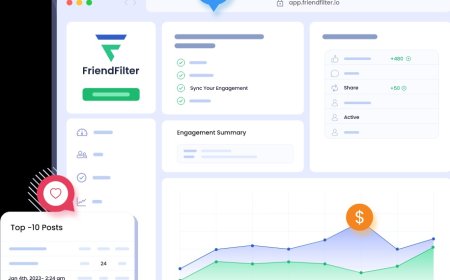Ethereum Staking Tax Guide 2025: How to Stay Compliant and Maximize Returns
Ethereum staking rewards are taxable in most countries. This 2025 tax guide explains how to report ETH income, avoid penalties, and stay compliant.

Introduction to Crypto Taxes in 2025
With the explosive growth of staking and DeFi, tax authorities around the world are paying closer attention to crypto income. As Ethereum staking becomes a mainstream passive income strategy, it's critical to understand how staking rewards are taxed and how to properly report them.
Whether you're using Lido, Coinbase, Rocket Pool, or your own validator node, staking ETH in 2025 creates taxable events that you must document correctly or risk serious penalties.
How Ethereum Staking Generates Taxable Events
Ethereum staking can generate taxes in two ways:
-
Income Tax
You receive staking rewards in ETH. These are generally taxed as ordinary income at the time you receive them. -
Capital Gains
If you later sell or trade that ETH (including liquid staking tokens like stETH), you'll pay tax on the price difference between when you earned it and when you sold it.
Example:
-
You earn 1 ETH as staking reward when ETH is $2,500 ? you report $2,500 as income.
-
You later sell that 1 ETH for $3,200 ? you pay capital gains on the $700 profit.
Staking Rewards: Income or Capital Gains?
This depends on how tax authorities define the event:
-
In most countries (USA, UK, Australia): Rewards are taxed as income upon receipt, based on fair market value.
-
Capital gains are only triggered when you sell or exchange the staked ETH.
? Note: If your staking reward is automatically reinvested (as in compounding), it still counts as taxable income the moment it's credited to you.
Tax Treatment by Region
| Country | Staking Rewards Tax | Capital Gains Tax | Notes |
|---|---|---|---|
| USA | Yes (ordinary income) | Yes | Must report FMV on receipt |
| UK | Yes | Yes | Considered miscellaneous income |
| Canada | Yes | Yes | Income upon receipt and gains on sale |
| Australia | Yes | Yes | Taxed based on value at time of receipt |
| EU (varies) | Mostly yes | Mostly yes | Country-specific nuances |
Always check with a local tax advisor or legal source for your jurisdiction.
Liquid Staking and Derivatives Taxation
Using services like Lido (stETH), Coinbase (cbETH), or Rocket Pool (rETH) creates tokenized staking derivatives.
Tax Triggers May Include:
-
Receiving stETH = Income
-
Swapping stETH to ETH or using it in DeFi = Capital gain/loss
-
Using stETH in yield farming = Taxable depending on jurisdiction
? Tip: Always record when and how much you receive and spend, including token prices at those moments.
Unstaking and Re-Staking: Tax Implications
If you:
-
Move ETH from Lido to Coinbase
-
Change from one staking pool to another
-
Withdraw and re-deposit staked ETH
?? Each movement might trigger disposal events, especially if liquid tokens are involved.
Example: Swapping stETH to ETH before restaking = taxable event.
Reporting Ethereum Staking Rewards
Youll need:
-
Date received
-
Amount of ETH or stETH earned
-
Fair market value at that time
-
Platform or wallet used
Example Tax Log:
| Date | Token | Amount | USD Price | FMV (USD) |
|---|---|---|---|---|
| 2025-03-01 | stETH | 0.5 | $3,000 | $1,500 |
| 2025-04-15 | stETH | 0.3 | $3,200 | $960 |
Tools for Tracking Staking Income
Use these to automate your crypto tax reports:
-
Koinly Best for DeFi and staking
-
CoinTracker Syncs with major exchanges and wallets
-
Accointing Powerful dashboards and reports
-
TaxBit IRS-compliant for US users
Tax Loss Harvesting with Ethereum
If your staked ETH or stETH has lost value, you can sell at a loss to offset gains.
-
Helps reduce your total taxable income
-
Be cautious of wash sale rules (e.g., re-buying the same asset too soon)
Common Mistakes to Avoid
-
? Not accounting for gas fees in your tax report
-
? Forgetting to include rewards from staking platforms
-
? Ignoring airdrops or bonuses related to staking
-
? Using only screenshots instead of exported transaction history
How to Prepare for Tax Season 2025
? Checklist:
-
Export full transaction data from wallets and exchanges
-
Categorize income vs capital events
-
Run reports using software
-
Back everything up before submitting
For large portfolios, consult a tax professional with crypto expertise.
FAQs on Ethereum Staking Taxes
1. Do I owe taxes if I dont sell my staked ETH?
Yes rewards are income when received, regardless of sale.
2. Are staking tokens like stETH taxable?
Yes both when received and when swapped or spent.
3. What if I lose access to my staking wallet?
Unfortunately, tax liability remains unless loss can be proven (e.g., via theft reports).
4. Can I claim staking-related expenses?
Sometimes like gas fees, accounting software, or validator node costs (depends on jurisdiction).
5. Do I need to pay quarterly estimated taxes?
Yes, if you're a US taxpayer and earn enough from staking income.
Final Thoughts and Tips to Minimize Tax Liabilities
Ethereum staking can be a lucrative passive income strategy but only if you track, report, and plan smartly.
-
Use automated tax software
-
Stay updated with regulations
-
Consider harvesting losses or rebalancing at year-end
In 2025, tax agencies will likely double down on crypto enforcement. Stay proactive to avoid problems and keep more of your ETH earnings!






































